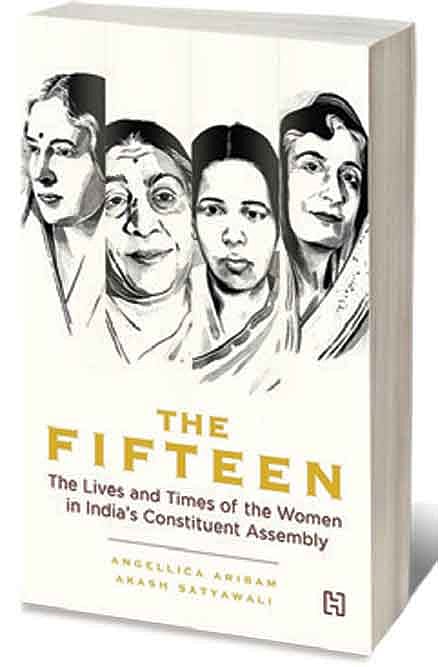Founding Women

HOW VERY FEW they were— just 15 out of 299. In the Constituent Assembly that was the fraction of women members. Just about 5 per cent.
It is not as if women’s representation has radically increased in the higher legislative bodies since then. In the current Lok Sabha there are 74 women MPs, about 13 per cent of the total. However, even by this low standard 5 per cent or 15 members in the Constituent Assembly does seem small.
The Fifteen comprises the bio sketches of these women and makes for a fascinating compilation of brief biographies. Most of these women came from privileged backgrounds—some were from erstwhile royal or major landholding backgrounds. Others came from well-established professional families—with husbands and fathers as senior civil servants or well-known lawyers. However the exception is Dakshayani Velayudhan—a Dalit belonging to the Pulaya or ‘slave caste’ whose members were till the early 19th century quite literally slaves. She was the only Dalit woman in the Constituent Assembly. But there are other firsts to her name: the first Dalit science graduate from Cochin and the first Dalit woman in the Cochin Legislative Council.
Given that they lived in the age of Gandhian principles it was inevitable that for most of these women their trajectory through public life would be governed by nonviolence and constitutional means. But there were exceptions such as Leela Roy, who chose the revolutionary path. Finally, most were in the Congress or within the larger Congress fraternity. Begum Qudsia Aizaz Rasul provides an exception here as she was elected to the Constituent Assembly from the Muslim League and migrated to the Congress only after independence.
In this cohort some had formidable reputations. Sarojini Naidu was a household name for over three decades even before she joined the Constituent Assembly. She became India’s first woman governor. Sucheta Kriplani was India’s first woman Chief Minister, and Rajkumari Amrit Kaur the first woman Union minister. Others like Vijaya Lakshmi Pandit and Hansa Mehta acquired international profiles. Vijaya Lakshmi Pandit, Jawaharlal Nehru’s sister—was one of India’s earliest ambassadors. She led the Indian delegation to the UN in 1946—the first woman to head a country delegation—and rose to fame for the way she dealt with South Africa’s poor human rights record. Hansa Mehta similarly represented India in the newly established UN Human Rights Commission and played a significant role in the drafting of the Universal Declaration of Human Rights.
Imran Khan: Pakistan’s Prisoner
27 Feb 2026 - Vol 04 | Issue 60
The descent and despair of Imran Khan
In contrast, others remained in the background and some outstanding journeys have been forgotten. Kamla Chaudhury was a strong protagonist of the Hindu Code Bill in the Constituent Assembly—it was finally shelved because of strong conservative reactions. Malati Devi Choudhury was in a select category of those who were jailed for long periods by the colonial state and was also imprisoned during the Emergency. Ammu Swaminathan was active in the Indian Women’s Association—an early institutional advocate for women’s suffrage. She was a prominent member of the All India Women’s Conference and after her term in the Constituent Assembly was in the Lok Sabha and the Rajya Sabha. Yet she was in time overshadowed by her daughter Captain Lakshmi Sahgal of the Indian National Army. The early death of the formidable Purnima Banerjee (incidentally the sister of the firebrand Aruna Asaf Ali) and Sarojini Naidu depleted the number of 15 further as did the appointment of some of them to other constitutional posts. A reading of the book nevertheless reveals how often and how much these talented women punched above their weight.
The Fifteen is a wonderful compilation of short biographies of each of the 15, some of whom have faded from memory. The authors must be congratulated for embarking on and completing this much-needed task.

